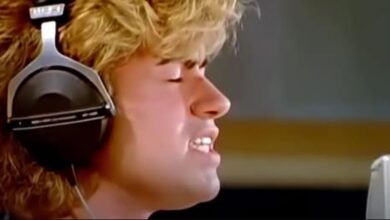Don’t Let Me Down: Exploring The Beatles’ Timeless Anthem
“Don’t Let Me Down” is one of The Beatles’ classic hits, known for its soulful melody and heartfelt lyrics. Written by John Lennon and performed by Lennon and Paul McCartney as a duet, the song was released as a B-side to the single “Get Back” in 1969. Despite its status as a B-side, “Don’t Let Me Down” became one of the band’s most beloved tracks.
The song’s lyrics express vulnerability and a plea for support and reassurance in a relationship. Lennon’s emotive vocals combined with McCartney’s harmonies create a powerful dynamic, conveying the depth of emotion in the song. The instrumentation is relatively simple yet effective, with a prominent electric guitar riff and steady rhythm section providing a solid foundation for the vocals.
“Don’t Let Me Down” has been praised for its raw honesty and sincerity, qualities that resonate with listeners across generations. Its enduring popularity is evidenced by its continued presence on radio playlists and its inclusion in various Beatles compilations and greatest hits albums.
Beyond its musical merits, “Don’t Let Me Down” also holds historical significance as part of The Beatles’ final rooftop concert. In January 1969, the band famously performed an impromptu set on the rooftop of their Apple Corps headquarters in London, which included renditions of several songs, including “Don’t Let Me Down.” The concert marked the end of an era for The Beatles and remains a memorable moment in music history.
In addition to its original release, “Don’t Let Me Down” has been covered by numerous artists, further solidifying its status as a timeless classic. From live performances to studio recordings, musicians continue to pay homage to The Beatles’ enduring influence through their interpretations of this iconic track.
John Lennon, born on October 9, 1940, in Liverpool, England, was a pivotal figure in the music industry, both as a member of The Beatles and as a solo artist. Alongside Paul McCartney, George Harrison, and Ringo Starr, Lennon helped shape the sound of the 1960s and beyond. His songwriting prowess, distinct vocal style, and charismatic persona contributed to The Beatles’ unprecedented success.
Lennon’s musical journey began in his teenage years when he formed his first band, The Quarrymen, which eventually evolved into The Beatles. Throughout the band’s career, Lennon collaborated closely with McCartney, creating some of the most iconic songs in the pop music canon. After The Beatles disbanded in 1970, Lennon pursued a successful solo career, releasing acclaimed albums such as “Imagine” and “Double Fantasy.”
Tragically, Lennon’s life was cut short when he was shot and killed outside his New York City apartment on December 8, 1980. His untimely death shocked the world and left an indelible mark on the music community. Despite his premature passing, Lennon’s legacy continues to inspire countless musicians and fans worldwide, cementing his status as one of the greatest artists of all time.





